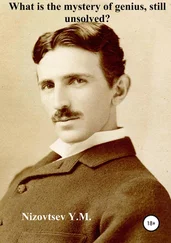Cesare Lombroso - The Man of Genius
Здесь есть возможность читать онлайн «Cesare Lombroso - The Man of Genius» — ознакомительный отрывок электронной книги совершенно бесплатно, а после прочтения отрывка купить полную версию. В некоторых случаях можно слушать аудио, скачать через торрент в формате fb2 и присутствует краткое содержание. Жанр: foreign_antique, foreign_prose, на английском языке. Описание произведения, (предисловие) а так же отзывы посетителей доступны на портале библиотеки ЛибКат.
- Название:The Man of Genius
- Автор:
- Жанр:
- Год:неизвестен
- ISBN:нет данных
- Рейтинг книги:5 / 5. Голосов: 1
-
Избранное:Добавить в избранное
- Отзывы:
-
Ваша оценка:
- 100
- 1
- 2
- 3
- 4
- 5
The Man of Genius: краткое содержание, описание и аннотация
Предлагаем к чтению аннотацию, описание, краткое содержание или предисловие (зависит от того, что написал сам автор книги «The Man of Genius»). Если вы не нашли необходимую информацию о книге — напишите в комментариях, мы постараемся отыскать её.
The Man of Genius — читать онлайн ознакомительный отрывок
Ниже представлен текст книги, разбитый по страницам. Система сохранения места последней прочитанной страницы, позволяет с удобством читать онлайн бесплатно книгу «The Man of Genius», без необходимости каждый раз заново искать на чём Вы остановились. Поставьте закладку, и сможете в любой момент перейти на страницу, на которой закончили чтение.
Интервал:
Закладка:
The list of great men who have committed suicide is almost endless. It opens with the names of Zeno Aristotle(?), Hegesippus, Cleanthes, Stilpo, Dionysus of Heraclea, Lucretius, Lucan, and reaches to Chatterton, Clive, Creech, Blount, Haydon, David. Domenichino was led to commit suicide by the contempt of a rival; Spagnoletto by the abduction of his daughter; Nourrit by the success of Dupré; Gros could not survive the decadence of his genius. Robert, Chateaubriand, Cowper, Rousseau, Lamartine on several occasions nearly put an end to their lives. Burns wrote in a letter: “My constitution and frame were ab origine blasted with a deep incurable taint of melancholia which poisons my existence.” Schiller passed through a period of melancholy which caused him to be suspected of insanity. In B. Constant’s letters we read: “If I had had my dear opium, it would have been the moment, in honour of ennui , to put an end to an excessive movement of love.” 99 99 B. de Boismont, op. cit. p. 265.
Dupuytren thought of suicide even when he had reached the climax of fame. Pariset and Cavour were only saved from suicide by devoted friends. The latter twice attempted to kill himself. Lessmann, the humorous writer, who wrote the Journal of a Melancholiac , hanged himself in 1835 during an attack of melancholia. So died, also, the composer of Masaniello , Fischer, Romilly, Eult von Burg, Hugh Miller, Göhring, Kuh (the friend of Mendelssohn), Jules Uberti, Tannahill, Prévost-Paradol, Kleist, who died with his mistress, and Majláth, who drowned himself with his daughter.
George Sand, who seems, however, free from all neurosis, declared that whether it was that bile made her melancholy, or that melancholy made her bilious, she had been seized at moments of her life by a desire for eternal repose – for suicide. She attributed this to an affection of the liver. “It was an old chronic disorder, experienced and fought with from early youth, forgotten like an old travelling companion whom one believes one has left behind, but who suddenly presents himself. This temptation,” she continues, “was sometimes so strange that I regarded it as a kind of madness. It took the form of a fixed idea and bordered on monomania. The idea was aroused chiefly by the sight of water, of a precipice, of phials.”
George Sand tells us that Gustave Planche was of strangely melancholy character. Edgar Quinet suffered at times from unreasonable melancholy, in this taking after his mother. Rossini experienced, about 1848, keen grief because he had bought a house at a slight loss. He became really insane, and took it into his head that he was reduced to extreme misery, so that he must beg. He believed that he had become an idiot. He could, indeed, neither compose nor even hear music spoken of. The care of Sansone, of Ancona, gradually restored him to fame and to his friends. The great painter Van Leyden believed himself poisoned, and during his latter years never rose from his bed. Mozart was convinced that the Italians wished to poison him. Molière had numerous attacks of melancholia. 100 100 Hagen, Ueber die Verwandtschaft, &c. , 1877.
Voltaire was hypochondriacal. 101 101 Roger, Voltaire Malade , 1883.
“With respect to my body,” he wrote, “it is moribund… I anticipate dropsy. There is no appearance of it, but you know that there is nothing so dry as a dropsical person… Diseases, more cruel even than kings, are persecuting me. Doctors only are needed to finish me.” “All this” (travels, pleasures, &c.), said Grimm, “did not prevent him from saying that he was dead or dying; he was even very angry when one dared to assure him that he was still full of strength and life.” Zimmermann was afraid sometimes of dying of hunger, sometimes of being arrested; he actually died of voluntary starvation, the result of a fixed idea that he had no money to pay for food. The poet Gray, the “melancholy Gray,” was of a gloomy and extremely reserved character. Abraham Lincoln was a victim of constitutional melancholy, which assumed a most dangerous form on one or two occasions in his earlier years.
Chopin during the last years of his life was possessed by a melancholy which went as far as insanity. An abandoned convent in Spain filled his imagination with phantoms and terrors. One day G. Sand and her son were late in returning from a walk. Chopin began to imagine, and finally believed, that they were dead; then he saw himself dead, drowned in a lake, and drops of frozen water fell upon his breast. They were real drops of rain falling upon him from the roof of the ruin, but he did not perceive this, even when George Sand pointed it out. Some trifling annoyance affected him more than a great and real misfortune. A crumpled petal, a fly, made him weep. 102 102 G. Sand, Histoire de Ma Vie , 9.
Cavour from youth believed himself deprived of domestic affections. He saw no friends around; he saw above him no ideal to realise; he found himself alone. 103 103 Berti, p. 154.
His condition reached such a point that, to avoid greater evils and to leave an insipid life, he wished to kill himself. He hesitated only because he was doubtful about the morality of suicide. “But, while this doubt exists, it is best for me to imitate Hamlet. I will not kill myself: no, but I will put up earnest prayers to heaven to send me a rapid consumption which may carry me off to the other world.” At a very youthful age he sometimes gave himself up to strange attacks of bad temper. One day, at the Castle of Diluzers, at Balangero, he threw himself into so violent a rage on being asked to study that he wished to kill himself with a knife and throw himself from the window. These attacks were very frequent but of brief duration. 104 104 Berti, Cavour Avanti il 1848, Rome; Mayor, in Archivo di Psichiatria , vol. iv.
When the hopes of war raised by the words of Napoleon III. to Baron Hübner seemed suddenly to give place in the Emperor’s mind to thoughts of peace, Cavour was carried away by such agitation that some extreme resolution was apprehended. This is confirmed by Castelli, who went to his house and found him alone in his room. He had burnt various papers, and given orders that no one should be admitted. The danger was plain. He looked fixedly at Castelli, who spoke a few calm words calculated to affect him, and then burst into tears. Cavour rose, embraced him convulsively, took a few steps distractedly about the room, and then said slowly: “Be at rest; we will brave everything, and always together.” Castelli ran to reassure his friends, but the danger had been very grave. 105 105 Mayor, op. cit.
Chateaubriand relates, in his Mémoires d’outre Tombe , that one day as a youth he charged an old musket, which sometimes went off by itself, with three balls, inserted the barrel in his mouth and struck the stock against the ground. The appearance of a passer-by suspended his resolution.
Gérard de Nerval was never so much inspired as in those movements when, according to the saying of Alexandre Dumas, his melancholy became his muse. “Werther, René, Antony,” says Dumas, “never uttered more poignant complaints, more sorrowful sighs, tenderer words, or more poetic cries.”
J. S. Mill 106 106 Autobiography.
was seized during the autumn of 1826, at the age of twenty, by an attack of insanity which he himself could only describe in these words of Coleridge’s:
“A grief without a pang, void, dark, and drear,
A drowsy, stifled, unimpassioned grief,
Which finds no natural outlet or relief
In word, or sigh, or tear.”
I quote these lines the more willingly as they show in their extreme energy that Coleridge himself was affected by the same malady. To this state of mind succeeded another in which Mill sought to cultivate the feelings; among other preoccupations he feared the exhaustion of musical combinations: “The octave consists only of five tones and two semi-tones, which can be put together in only a limited number of ways, of which but a small proportion are beautiful: most of them, it seemed to me, must have been already discovered, and there could not be room for a long succession of Mozarts and Webers to strike out, as these had done, entirely new and surpassingly rich veins of musical beauty. This source of anxiety may, perhaps, be thought to resemble that of the philosophers of Laputa, who feared lest the sun should be burnt out.” 107 107 Autobiography , p. 145.
Интервал:
Закладка:
Похожие книги на «The Man of Genius»
Представляем Вашему вниманию похожие книги на «The Man of Genius» списком для выбора. Мы отобрали схожую по названию и смыслу литературу в надежде предоставить читателям больше вариантов отыскать новые, интересные, ещё непрочитанные произведения.
Обсуждение, отзывы о книге «The Man of Genius» и просто собственные мнения читателей. Оставьте ваши комментарии, напишите, что Вы думаете о произведении, его смысле или главных героях. Укажите что конкретно понравилось, а что нет, и почему Вы так считаете.












